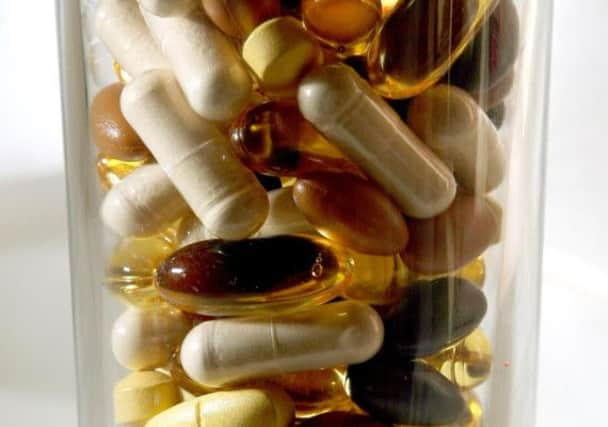‘Real gamechanger on superbugs’


The drug, teixobactin, was isolated from soil bacteria using a revolutionary technique that may in future yield a rich harvest of previously hidden antibiotic compounds.
It has the ability to kill many types of harmful bacteria, including the superbug MRSA (methicillin resistant Staphylococcus aureus), by breaking down their cell walls.
Advertisement
Hide AdAdvertisement
Hide AdBecause it targets fatty molecules in the cell wall instead of proteins it is also much less likely than most antibiotics to induce microbial resistance.
In tests, scientists found no evidence of bugs evolving ways to cheat death by teixobactin, which proved harmless to mammalian cells.
British experts hailed the research as a “game changer” and “very exciting”.
Professor Kim Lewis, from Northeastern University in Boston, who led the US team, said: “No resistance normally means that we discovered a new detergent, which is a molecule that will destroy the membrane of the bacterial cell but also will destroy the membranes of our cells, so these are toxic compounds.
Advertisement
Hide AdAdvertisement
Hide Ad“That was my first reaction; that we found another boring molecule. But then in parallel we tested that compound against mammalian cells, and found it was not toxic against mammalian cells.
“So we have something very intriguing. Here is a new molecule that hits bacterial cells, does not hit mammalian cells, and there’s no resistance .. That was unique and very exciting.”
Teixobactin is effective against some microbes - known as “gram positive” bacteria - and not others. But the organisms vulnerable to it include some very nasty examples, such as MRSA, the TB bug mycobacterium tuberculosis, and Clostridium difficile (C. diff).
The drug will not work against “gram negative” bacteria such as Escherichia coli (E.coli) which have a kind of molecular armour plating protecting their cell membranes. Gram negative bacteria pose one of the greatest antibiotic resistance challenges.
Advertisement
Hide AdAdvertisement
Hide AdHowever the research goes much further than identifying one promising new drug. It potentially opens the door to further discoveries that could boost the world’s antibiotic arsenal and turn the tide against the superbugs.
The Government’s Chief Medical Officer Dame Sally Davies has said antibiotic resistance poses a “catastrophic threat” on a par with terrorism and climate change.
Commenting on the research, microbiologist Professor Laura Piddock, from the University of Birmingham, said: “The screening tool developed by these researchers could be a game changer for discovering new antibiotics as it allows compounds to be isolated from soil producing micro-organisms that do not grow under normal laboratory conditions.”
Professor Roger Pickup, associate dean of research at the University of Lancaster, said: “This is a very exciting development.”
Advertisement
Hide AdAdvertisement
Hide AdProfessor Neil Woodford, of Public Health England’s Antimicrobial Resistance and Healthcare Association Infections Reference Unit, said: “The rise in antibiotic resistance is a threat to modern healthcare as we know it so this discovery could potentially help to bridge the ever increasing gap between infections and the medicines we have available to treat them.”